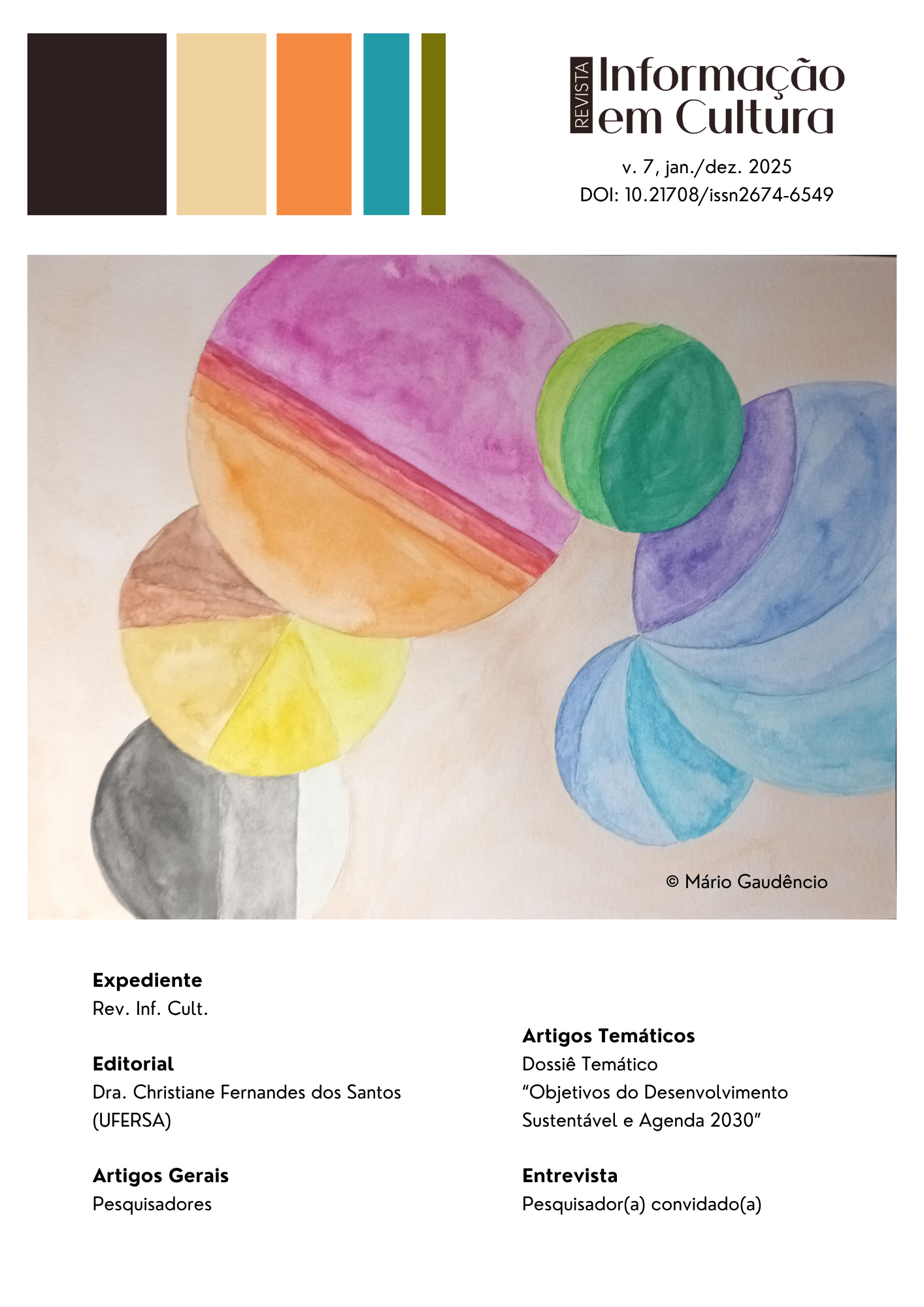A Biblioteca Nacional e a censura à literatura erótica na Ditadura Militar
o depósito legal e as ações de resistência bibliotecária
DOI:
https://doi.org/10.21708/issn2674-6549.v7e140872025Parole chiave:
Censura a livros, Ditadura Militar – Brasil, Atuação bibliotecária, Biblioteca Nacional – Brasil, Depósito Legal, Literatura eróticaAbstract
Português
Durante a Ditadura Militar brasileira, ocorrida de 1964 a 1985, uma das armas utilizadas pelo governo autoritário contra a livre circulação de ideias foi a censura, sendo essa prática também exercida no controle às publicações literárias. Assim sendo, na presente pesquisa, buscamos identificar se, durante esse período, o governo interferiu com atos censórios na Biblioteca Nacional. Sendo a instituição a depositária legal das produções literárias brasileiras, essa ação criaria uma lacuna na coleta das produções desse período. Buscamos também investigar e relatar ações de resistência por parte dos bibliotecários ativos à época. Para tais objetivos serem alcançados, utilizamo-nos de pesquisa documental em arquivos administrativos da Biblioteca Nacional e de entrevistas com dois bibliotecários da instituição. No levantamento realizado, identificamos um déficit no envio das obras publicadas no período, mas não detectamos a sua ocorrência por interferência governamental, contudo, constatamos que ocorreu uma censura a posteriori, executada com a visita de militares realizando fiscalizações in loco, oficialmente, nos armazéns onde se acondicionavam as publicações periódicas, e camufladamente, como pesquisadores habituais buscando publicações bibliográficas desaprovadas pelo governo. Também identificamos ações realizadas por bibliotecários, visando à proteção de obras proibidas, tais como: ocultamento em cofre e armário, retirada de fichas de identificação do catálogo dicionário, mudança física de obras de estantes e seção. Concluímos que houve ação governamental de tentativa de subtração de acervo, embora não tenha havido interferência direta no Depósito Legal. Houve também, uma reação dos bibliotecários à essas tentativas de eliminação, aplicando técnicas silenciosas de salvaguarda às publicações censuradas.
Inglês
During the Brazilian military dictatorship, which lasted from 1964 to 1985, one of the weapons used by the authoritarian government against the free circulation of ideas was censorship, and this practice was also exercised in controlling literary publications. Therefore, in this research, we seek to identify whether, during this period, the government interfered with censorship acts in the National Library. Since the institution is the legal depository of Brazilian literary productions, this action would create a gap in the collection of productions from that period. We also seek to investigate and report on acts of resistance by librarians active at the time. To achieve these objectives, we used documentary research in administrative archives of the National Library and interviews with two librarians of the institution. In the survey, we identified a deficit in the submission of works published during the period, but it was not possible to detect that this was due to government interference. However, we found that censorship occurred a posteriori, carried out with visits by military personnel to carry out official on-site inspections of the warehouses where periodicals were stored, and camouflaged as regular researchers searching for bibliographic publications disapproved by the government. We also identified actions carried out by librarians, among other employees, aimed at protecting prohibited works, such as: hiding them in safes and cabinets, removing identification cards from the dictionary catalog, physically moving works from shelves and sections. We concluded that there was government action to attempt to remove the collection, although there was no direct interference in the Legal Deposit. There was also a reaction by librarians to these attempts at elimination, applying silent techniques to safeguard censored publications.
Downloads
Downloads
Pubblicato
Come citare
Fascicolo
Sezione
Licenza
Copyright (c) 2025 Licenças Creative Commons

Questo lavoro è fornito con la licenza Creative Commons Attribuzione - Condividi allo stesso modo 4.0.





